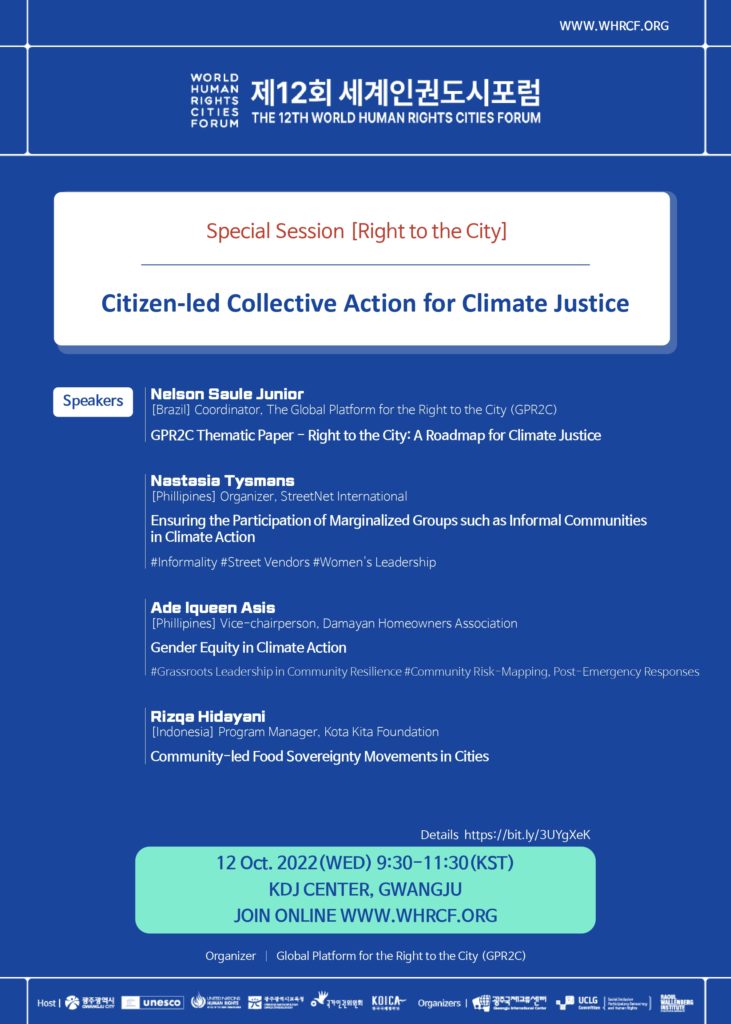
In this session, we will be exploring the framework of the Right to the City in the context of climate justice through the GPR2C thematic paper – “Right to the City: A Road for Climate Justice” which will be presented by our dear Nelson Saule Júnior and also highlight experiences and case studies from the GPR2C network (i.e., StreetNet, Huairou Commission, Kota Kita).
| Date: Wednesday, October 12, 2022 Time: 9:30 – 11:30 am (Korea Standard Time) 9:30 – 11:30 pm (Sao Paulo time) 00:30 – 02:30 am (GMT) The session will be held in a hybrid setting and those who wish to participate can join through these channels: On-site participation Online participation |
Background
While climate crisis has been widely recognized as one of the greatest challenges currently faced by
humankind, the social justice dimensions of climate action and the strategies developed to achieve
them have remained relatively underexplored. Furthermore, climate action talks have typically
placed a heavy emphasis on government action, while in reality, there have been numerous citizen led initiatives to advocate climate justice.
Right to the City — understood as a collective right that highlights the territorial integrality and
interdependence of all internationally recognized civil, political, economic, social, cultural and
environmental rights, as regulated in international human rights treaties — has been an alternative and
fruitful framework with which to respond to some of the most pressing challenges of our time: social
injustice, inequality, exclusion, dispossession, spatial segregation, discrimination of all kinds,
destruction and privatization of the commons and environmental degradation. The framework also fully
aligns with the notions of Climate and Environmental justice and can provide a reference framework to
guide equitable climate action and to jointly create practical agendas to mitigate climate change.
The session seeks to explore the conceptual framework of right to the city in the context of climate
justice through the presentation of the thematic paper compiled by the Global Platform for the Right to
the City (GPR2C) – “Right to the City: A Roadmap for Climate Justice” and highlight experiences and case studies of citizen-led efforts to reclaim their right to a sustainable urban future across multiple sectors i.e., informality, gender equality, food sovereignty.
Objectives
1. To explore the role of the Right to the City as a framework of collective action for cities facing
climate crisis and advocating for climate justice.
2. To exchange experiences and build knowledge on right to the city practices in the climate
justice context through case studies of citizen-led efforts across multiple sectors, such as
informality, gender equality, food sovereignty.
Main agenda
1. Introducing Right to the City as a conceptual framework of collective action in climate justice
2. Incorporating perspectives and participation of marginalized groups i.e., informal communities
in climate actions
3. Ensuring gender equity in climate actions
4. Community-led food sovereignty movements as a manifestation of climate justice




